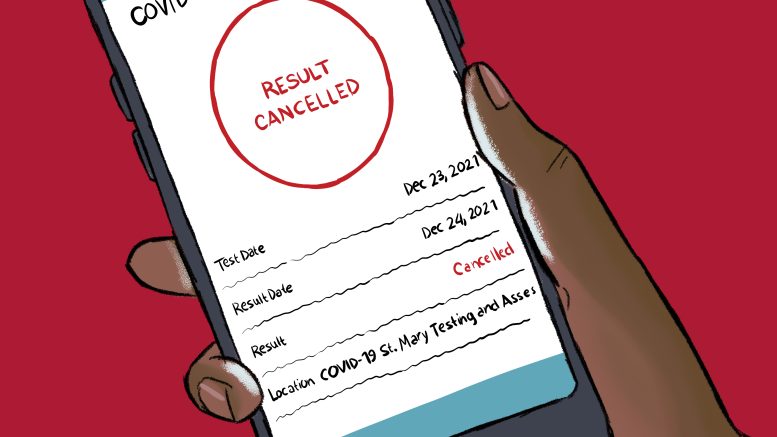Ottawa will be sending 140 million rapid tests to provincial and territorial governments to assist with overwhelmed PCR testing capacities nationwide.
The Manitoba government has announced those who receive a positive rapid test result should assume they are positive and isolate rather than return for a more comprehensive PCR test.
The province’s testing capacity was overwhelmed over the holidays with unprecedented demand as Omicron swept through Manitoba, leaving a backlog of 10,000 tests on Christmas Eve.
Some Manitobans waited as long as 12 days to receive their PCR test results, while others had their results cancelled entirely.
To lessen the burden on PCR testing facilities, public health authorities began sending symptomatic and vaccinated people home with rapid tests.
However, Manitobans have still struggled to obtain rapid tests, with some grocery stores and pharmacies selling individual tests for $40 or more and selling out within days.
Until recently, the Manitoba government has been reluctant to make rapid tests widely available, citing concerns about their accuracy and worrying they would give people a false sense of security to disregard public health orders.
Aleeza Gerstein, assistant professor in the University of Manitoba’s departments of microbiology and statistics, wishes the government had been more proactive and criticized the delay in distributing rapid tests.
“We could have distributed those tests a lot earlier,” she said.
“For example, I have colleagues in Nova Scotia who’ve had access to free and widely available rapid tests since, I think, the summer. Other provinces, like Alberta and Saskatchewan, were then pretty quick in December to start distributing the tests that they had.”
Since a positive rapid test result likely means the recipient has COVID-19, Gerstein does not object to the province limiting who receives PCR testing, but worries there “may be consequences that aren’t being considered.”
“For example, if you’re a person who needs a positive test result to get sick pay, is a rapid test going to be covered for that?” she said.
“If you are one of the people who unfortunately down the road suffers from long-term complications from the COVID infection […] if you’ve only tested positive on a rapid test and that’s not recorded anywhere, are you going to be later denied health care or treatment? I think it’s fine […] as long as we’re ensuring that there’s no negative repercussions for people who don’t have access to that positive PCR test.”
However, Gerstein said she would also like to see the government emphasize that negative rapid tests are less accurate than PCR tests.
“If you test negative on a rapid test, you shouldn’t assume that you’re negative,” she said.
The Manitoba government has also announced most individuals will have to do contact tracing themselves with no assistance from the government, as the rising caseload has strained the province’s resources.
Other provinces have also struggled to widely distribute rapid tests, with Ontario Premier Doug Ford apologizing after free rapid tests distributed at liquor stores “disappeared like rapid fire.”
“I think Omicron hit harder and faster than anyone was anticipating, that’s true in every jurisdiction in Canada,” said Gerstein.
However, she was not willing to let the government entirely off the hook.
“I think that in Manitoba, and just generally in the world, we tend to have fairly reactive policies rather than proactive policies, and I’m really hoping that if anything changes after this pandemic, [it’s] that as a society we can really move more towards proactive policies.”




